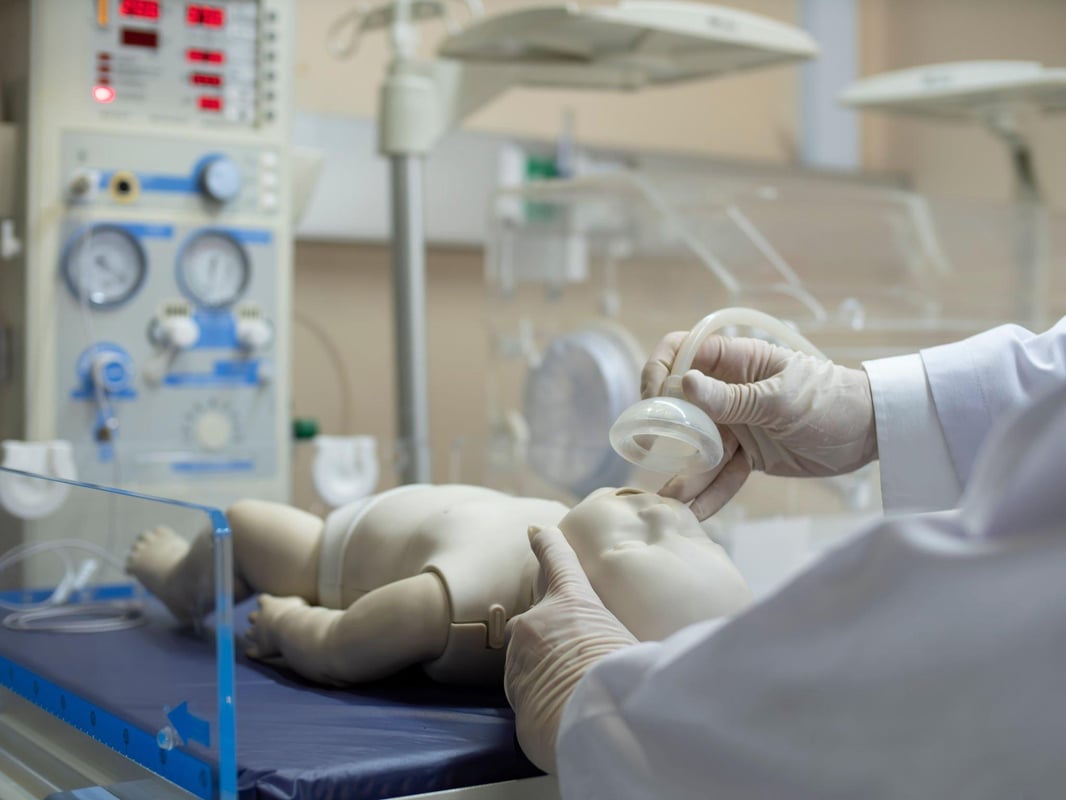
Financial aid (may be available)

Financial aid (may be available)

Financial aid (may be available)

Financial aid (may be available)
$276 total
$2,075 total
$270 total
$410 total
$365 total
$150 total
No cost info
$285 total
$150 total
No cost info
In the world of healthcare, the skills and knowledge to save lives are paramount. This is where Pediatric Advanced Life Support (PALS) comes into play. PALS is a critical certification that healthcare professionals need to help critically ill children and infants. If you're in the Scranton area and interested in obtaining this certification, this blog post will guide you on what to look for and expect from a PALS class.

Pediatric Advanced Life Support (PALS) is a certification program focused on enhancing the skills of healthcare professionals in handling critically ill children and infants, especially in emergencies. It provides a systematic approach to pediatric assessment, basic life support, effective resuscitation, and team dynamics to improve the quality of care provided.
Before enrolling in a PALS class, there are certain prerequisites to consider:
Healthcare professionals who want to enroll in PALS classes should have a basic understanding of Pediatric Basic Life Support (PBLS).
They should be familiar with ECG rhythm interpretation and have a working knowledge of pharmacology.
Participants are expected to identify and initiate early management of respiratory and cardiac arrest.
When choosing a PALS class, consider the following:
Accreditation: The class should be accredited by a recognized health organization.
Course Content: The curriculum should cover all aspects of Pediatric Advanced Life Support.
Course Duration: PALS courses typically last two to three days, but the duration may vary depending on the institution offering the course.
Instructors: The trainers should be experienced healthcare professionals with a solid background in pediatric care.
PALS classes are intensive and interactive, combining theoretical and practical sessions. Here's what a typical day might look like:
Theory Sessions: These cover pediatric emergencies, including respiratory and cardiac emergencies, shock, and resuscitation.
Practical Sessions: Participants practice skills such as airway management, vascular access, CPR, and ECG interpretation.
Team Dynamics: Participants learn the importance of communication and collaboration in a high-stress environment.
The PALS certification process includes:
Completion of the Course: Attend all sessions and participate actively in the class.
Written Examination: A written exam tests knowledge on pediatric emergencies and resuscitation.
Skills Evaluation: Practical skills are assessed through various simulations.
Successful candidates receive a PALS provider card, indicating they are certified to provide Pediatric Advanced Life Support.
After obtaining PALS certification, you can find related jobs in various healthcare settings, such as hospitals, emergency medical services, and intensive care units. Roles may include pediatric nurses, pediatricians, paramedics, and respiratory therapists. To find these opportunities, you can use job search platforms or networking events.
After becoming PALS certified, you might want to consider additional certifications to broaden your scope and skills. These may include:
Advanced Cardiac Life Support (ACLS): This course focuses on managing adult emergencies.
Neonatal Resuscitation Program (NRP): This program equips healthcare professionals with skills to handle neonatal emergencies.
Emergency Nursing Pediatric Course (ENPC): This course provides a comprehensive review of the skills needed to take care of pediatric patients in emergency situations.
PALS certification is not just a requirement for many healthcare roles, but it also enhances the quality of care provided to pediatric patients. It equips healthcare professionals with the knowledge and skills to promptly recognize and respond to cardiac, respiratory, and shock emergencies in children and infants. Furthermore, the team dynamics component of the course promotes effective communication and collaboration among healthcare professionals.
Obtaining PALS certification can significantly enhance your career prospects in the healthcare industry. Not only does it increase your employability, but it can also lead to career advancement opportunities. Many employers prioritize hiring professionals with PALS certification because they are equipped to manage pediatric emergencies effectively. Additionally, the certification could potentially lead to a higher salary range.
Dreambound offers a wealth of resources for healthcare professionals looking to further their education and training. Whether you're interested in becoming a medical sonographer, a respiratory therapist, or a dental assistant, Dreambound can help guide you on your career path.
PALS certification is a valuable asset for any healthcare professional working with children and infants. It provides the skills and knowledge necessary to handle pediatric emergencies, making a real difference in patients' lives. With a variety of PALS classes available in Scranton, you're just a step away from enhancing your career in the healthcare industry. Remember, saving a life could be in your hands.
With Dreambound's comprehensive collection, understand the certification process in this field for different cities. Looking for info on other states? Our additional guides are here to help.
Pondering a shift in your career path or exploring different professional avenues? Dreambound has created detailed guides to support you in making informed decisions:
Dreambound's platform allows prospective students to find the right educational program for them through searching, filtering, and connecting with our extensive selection of career & technical education partners.
Dreambound has over 70 programs across healthcare, technology, business, and industrial trades. This includes programs such as Medical Billing, Cybersecurity, and welding.
Some of our schools offer financial aid for those who qualify. Many others offer payment plans, where you can pay the cost of class over time.
Yes, Dreambound offers many online programs. On Dreambound's search, you can filter by online, in-person, and hybrid (part online, part in-person).
Dreambound is completely free for you to use! We are supported by schools and organizations who pay to advertise on our website, so we can offer all of our career resources for free.